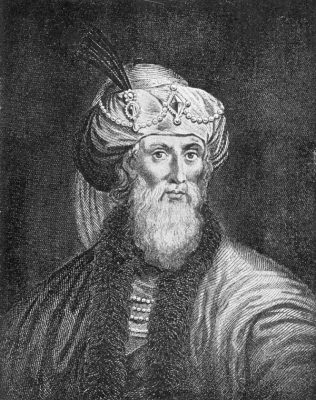Chapters
Josephus Flavius (Iosephus Flavius ) was born in 37 CE in Jerusalem in the priesthood. He was married three times and had two sons – Justus and Simonides. Josephus was a Jewish historian who, after being captured by the Roman Empire, was released by Vespasian, who, as his new patron, gave him the name of Flavius, granting him also Roman citizenship. Józef then devoted himself entirely to literary work.
Origin
Joseph was from the Joarib class, the first priesthood class in Israel. His great-grandfather, Matias Garbaty (born 135 BCE), was the maternal grandson of Jonathan Maccabee. His father was Mattias, the son of Joseph, a Jerusalem priest.
Josephus was educated in the Torah and became acquainted with the teachings of the philosophical schools of Sadducees, Pharisees and Essenes. He became associated with the doctrine of Pharisaism.
Józef described his origin in Autobiography:
The family from which I am derived is not an ignoble one, but hath descended all along from the priests; and as nobility among several people is of a different origin, so with us to be of the sacerdotal dignity, is an indication of the splendor of a family. Now, I am not only sprung from a sacerdotal family in general, but from the first of the twenty-four 1 courses; and as among us there is not only a considerable difference between one family of each course and another, I am of the chief family of that first course also; nay, further, by my mother I am of the royal blood; for the children of Asamoneus, from whom that family was derived, had both the office of the high priesthood, and the dignity of a king, for a long time together. I will accordingly set down my progenitors in order. My grandfather’s father was named Simon, with the addition of Psellus: he lived at the same time with that son of Simon the high priest, who first of all the high priests was named Hyrcanus. This Simon Psellus had nine sons, one of whom was Matthias, called Ephlias: he married the daughter of Jonathan the high priest, which Jonathan was the first of the sons of Asamoneus, who was high priest, and was the brother of Simon the high priest also. This Matthias had a son called Matthias Curtus, and that in the first year of the government of Hyrcanus: his son’s name was Joseph, born in the ninth year of the reign of Alexandra: his son Matthias was born in the tenth year of the reign of Archclaus; as was I born to Matthias in the first year of the reign of Caius Caesar. I have three sons: Hyrcanus, the eldest, was born in the fourth year of the reign of Vespasian, as was Justus born in the seventh, and Agrippa in the ninth.
– Josephus Flavius , The Life of Flavius Josephus, 1
In 64 CE he came to Rome, where he stayed for three years. Here, too, he successfully defended several Jerusalem priests imprisoned by Felix, the prosecutor of Judea, before the imperial court.
Uprising and Writing
He returned to the country in 66 CE when the Jewish uprising broke out against the Romans. Flavius joined the uprising, took command of the rebels in Galilee, commanded the defence of the Jotapata fortress, and in 67 CE. he was captured. Josephus, along with a group of 41 Jewish insurgents, was surrounded by the Romans in a cave. Preferring suicide over capture, the insurgents decided to form a circle and kill every third person until no one was left alive. Flavius did not want to decide on such a nonsensical death and quickly enumerated where he and his friend should stand in a circle to avoid death. He positioned himself in 16th place, thanks to which he remained alive as the penultimate person. Then, with number 31, he turned himself over to the Romans and survived. This is called the problem of Josephus Flavius.
After two years he was released by Vespasian, who, as his new patron, gave him the name of Flavius , giving him also Roman citizenship. Józef then devoted himself entirely to literary work. His staunch political opponent was another Jewish historian, Justus of Tiberias.
The date of his death is unknown, but it is known that he was still alive in 94 CE. It is said that he could only die in 103 CE. In “Jewish Antiquities”, in Testimonium Flavianum section, he mentions a figure called Jesus, who lived in the reign of Herod Antipas.
Creativity |
|

